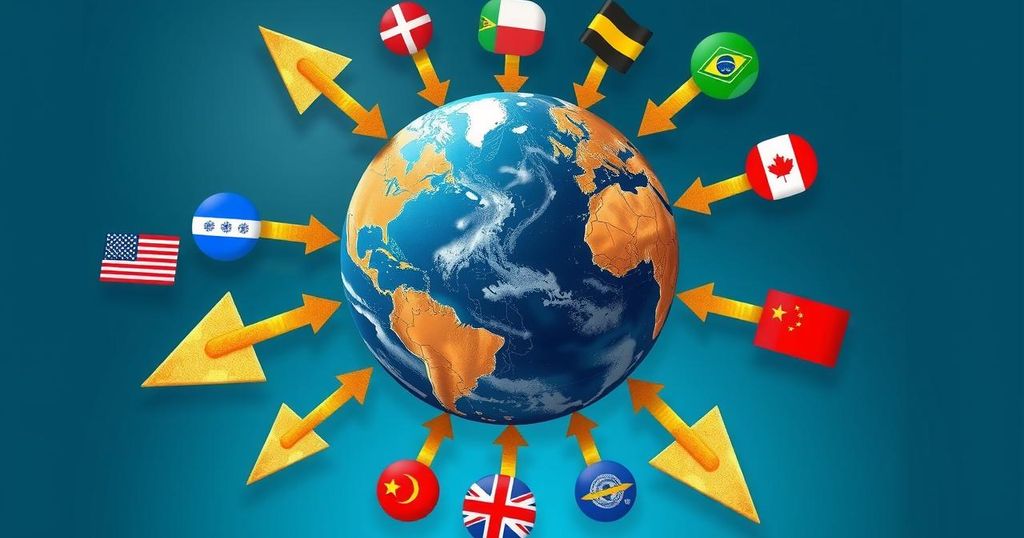Implications of Trump’s Extensive Tariff Packages on Global Trade
President Trump has announced extensive tariffs on over 180 countries, including significant duties on China, Vietnam, and India. The aim is to reclaim U.S. jobs and industries, but this decision has drawn criticism and may lead to retaliatory measures from other countries, impacting consumer prices.
On Wednesday, President Donald Trump announced significant tariffs on over 180 countries, including high duties on China (34%), Vietnam (46%), and India (26%). This initiative, characterized by Trump as ‘kind’ and ‘discounted’, represents one of the largest shifts in U.S. trade policy in decades, marking a retreat from previous trade liberalization efforts. The aim of these tariffs is to aid in reclaiming jobs within the U.S. and bolster local industries.
Trump staunchly defended the tariffs as necessary measures to reverse detrimental economic impacts from foreign nations, stating that America has been “looted, pillaged, raped and plundered” by both friendly and adversarial nations. The implementation of these tariffs, described by Trump as “discounted reciprocal tariffs,” is seen as a counter to existing tariffs imposed by other countries, with the objective of stimulating American economic growth.
The announcement has drawn mixed reactions, particularly from U.S. allies who were unprepared for the substantial rate increases. In presenting the tariffs, Trump referenced a chart outlining duties for key trade partners, indicating rates such as 20% on the European Union, 46% on Vietnam, and various other tariffs that could effectively reshape global trade dynamics.
A comprehensive list of the new tariffs includes: 34% on China, 20% on the European Union, 46% on Vietnam, 32% on Taiwan, and many others. These sweeping tariff measures are expected to provoke retaliatory actions from trading partners, potentially resulting in increased prices for consumers on a wide range of goods, including bicycles and wine. However, exceptions to these tariffs include specific categories like pharmaceuticals and energy products.
In summary, President Trump has instituted extensive tariffs impacting over 180 countries, framed as necessary for reclaiming American jobs and industries. While the tariffs could provoke retaliatory actions from trading partners, exceptions exist for certain essential goods. This policy marks a notable pivot in U.S. trade relations, suggesting significant alterations in global trading dynamics.
Original Source: www.indiatoday.in






Post Comment